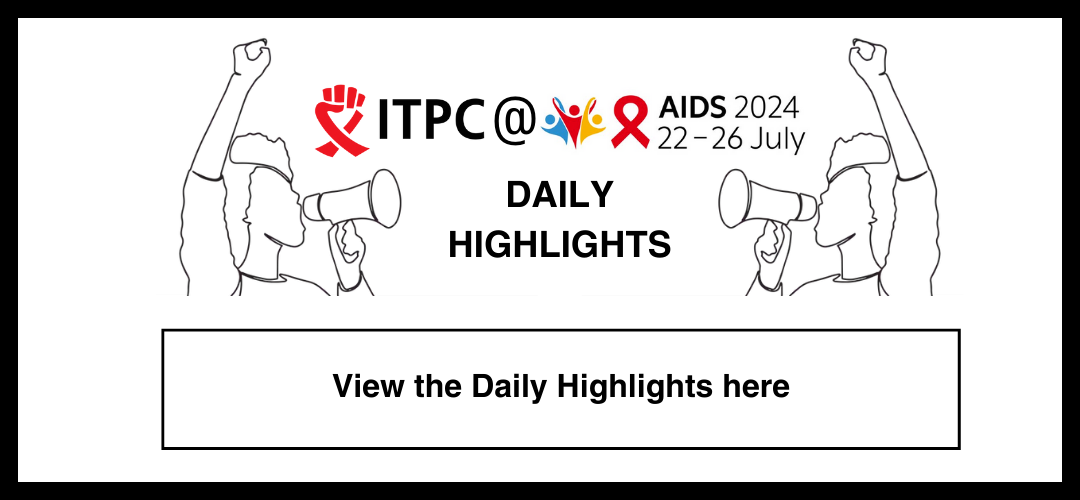I’m happy to share this example of International Treatment Preparedness Coalition’s work with Robert Carr Fund (RCF) support.
A national lockdown was instituted on 24 March 2020 in Nepal. Later, in April 2020, the Nepal government issued a COVID-19 Preparedness and Response Plan, providing directives on how to respond to the COVID-19 pandemic in the country. However, there was still a gap between the stated principles around care for PLHIV and the actual implementation of the guidelines. In fact, the government-imposed lockdown resulted in the loss of income for many people whose wages rely on daily, irregular work. In Nepal, where women generally have lower socioeconomic status, this meant that they were disproportionally affected. The situation was made even worse by women living with HIV and/or use drugs and/or sell sex, who are especially marginalized in society.
The nationwide lockdown and the imposed movement restrictions meant that these women were left particularly vulnerable. It is important as these categories of women are particularly marginalized in society and in need of greater support to manage the health and socioeconomic impacts of COVID-19. In addition to disruptions in ART access, women were faced with income loss as many were part of the informal sector and relied on daily wages for income (e.g. sex workers). Additional reports of hunger and domestic violence was reported by women supported by Dristi Nepal. Responding to the immediate urgent needs was a first step. A second step was to conduct a rapid assessment to gauge the extent of the COVID-19 impact and inform more long-term advocacy efforts.
The change was driven by Dristi Nepal. Founded in 2006, Dristi Nepal is an activist group of women who use drugs and live with HIV who work to safeguard human rights and the rights to health for its members. Dristi Nepal founder, Parina Subba describes it like this: “We work with women, and what we do with them depends on their needs. If they are sex workers, and if they are working in different places, we work through our wider networks, across different valleys to connect people to support. This means that we are many different things for different people: some need access to HIV medicine, some are surviving violence, some are migrant workers and have problems with citizenship, some need education, or advice or how to leave abusive partners.”
Dristi, in collaboration with health activists, obtained government-issued permits to safely deliver ARVs as well as provide psychosocial. The latter sometimes required using digital platforms (e.g. smartphones) or for those who lacked access, in-person meetings while respecting the safety protocols. This targeted women were not only those in Kathmandu but also in the rural areas, women who had returned to their home villages. Food aid was also delivered as food insecurity emerged as an urgent need.
In addition, between June and July 2020, Dristi Nepal also conducted a rapid assessment among its network to assess the extent of the impact of COVID-19. For this, a community-led participatory approach was used and a qualitative tool developed to address all levels of literacy. Members of the Dristi network who participated in the assessment shared about the situation before and during COVID-19 across select indicators: HIV testing, ART access, integrated care (sexual and reproductive health and harm reduction), employment and income (economic vulnerabilities and impacts), food security, safe place to live, violence and stigma and government accountability.
Dristi Nepal acted rapidly to address the immediate needs that emerged within their community of care through ART home delivery, psychosocial support, food aid. However, the rapid assessment revealed the more widespread and dire plight of women living with HIV and/or using drugs in Nepal. Basic rights were out of reach as families and landlords, for example, questioned women’s reasons for seeking healthcare. Women reported enduring stigma and discrimination after disclosing their HIV status. Restricted transport meant that women walked long distances to health facilities, sometimes with children. Standard of care was poor as women were met with harsh treatment from healthcare workers, more focused on dealing with COVID-19. Access to viral load testing was limited, which posed a challenge as it was a requirement for initiation on a DTG-based ART regimen. Additionally, most of Dristi’s network are made up of daily workers who all lost their job with the lockdown, leading to economic hardship (e.g. inability to pay rent) and food insecurity (inability to pay for food)—the latter a problem for those on ART.
The rapid assessment exercise capacitated members of the Dristi Nepal team, demonstrating that with adequate technical and financial support communities can conduct research and collect data to inform advocacy and hold governments accountable. The process of rolling out the tool led to stronger links with other civil society organisations, bilateral organisations and the government. Following the easing of lockdown in July 2020, this helped inform advocacy efforts by Dristi Nepal. This work of Dristi Nepal is ongoing and continued advocacy for the health and human rights of women living with HIV and/or using drugs is required. These issues were pressing before and have been made worse by COVID-19.
A full report of the rapid assessment is available here.
The results of this assessment were published in an e-poster presented at the IAS conference on HIV Science (IAS2021) in July 2021.
The findings from the rapid assessment conducted in Nepal was referred to in this donor report by the Funders Concerned About AIDS.

